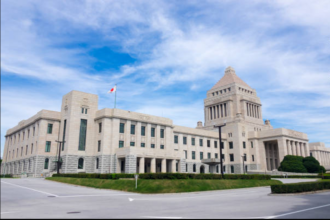What Are the Changes in the Finance Landscape?
“Now I think about it, I chose the wrong industry,” says Xiao Chen*, a Shanghai, China’s financial center private equity business employee. Following a demanding year, his view reflects the mounting unhappiness among the nation’s financial professionals.
Paid about 750,000 yuan ($106,200; £81,200) in his first year on the job, Xiao was hopeful about hitting the sought-after million-yuan mark. But three years later, his pay dropped to half that level. “My pay was frozen last year, and my annual bonus, which had been a big part of my income, vanished,” he says.
How Has the Glamour of Finance Faded?
Xiao talks of his changing view on the sector. ” The industry’s ‘glow’ has faded. It had made me feel sophisticated once. I am a “finance rat,” as my friends mockingly name us online.
This mindset change captures the more significant economic changes occurring in China. The once-vibrant scene promoting individual aspiration has collapsed. Under Xi Jinping, the Chinese government has become more cautious about personal riches and the widening problems of inequality.
What Are the Consequences of Government Crackdowns?
Socialist rhetoric stressing endurance and helping China’s general development has accompanied the government’s crackdown on billionaires and companies spanning real estate, technology, and finance. Also advised to tone down their online displays of riches have been celebrities.
“Loyalty to the Communist Party and the country now trumps personal ambition,” Xiao points out. His once extravagant way of living has come under criticism and changed; he traded a European holiday for a more affordable trip to Southeast Asia and acknowledges he “wouldn’t even think about” buying from luxury labels like “Burberry or Louis Vuitton.”
Are Finance Workers in a Wary Atmosphere?
At least they are less likely to suffer legal consequences, notwithstanding the challenges faced by financial professionals. Among the several finance officials and banking executives who have been arrested are former Bank of China chairman. Fan Yifei, the former vice-governor of the People’s Bank of China, was sentenced to death with a two-year reprieve for collecting bribes totaling 386 million yuan ($54.6 million; £41.8 million) in a noteworthy case.
How Are Pay Cuts Affecting Workers and Social Media?
The finance sector is under great strain, with wage cuts hot on Chinese social media. Posts stressing declining wages have attracted millions of views; on the popular platform Xiaohongshu, hashtags like “changing career from finance” and “quitting finance” have acquired popularity.
Many financial sector workers have seen their salaries drop starting the epidemic. But a July 2022 viral social media post marks a turning point. After revealing her husband’s 82,500-yuan monthly pay at China International Capital Corporation, a prestigious financial services company, a Xiaohongshu user ran under public criticism. Many were startled and rekindled debates on the wage gap in the sector by her husband’s pay, which contrasts sharply with the average salary of just over 12,000 yuan in Shanghai.
What Is the Rise of "Common Prosperity"?
This indignation matched Xi Jinping’s advocacy of “common prosperity,” a strategy to address the income disparity. The finance ministry adopted new rules in August 2022 mandating companies “optimize the internal income distribution and scientifically design the salary system.”
The top corruption watchdog of the nation attacked the ideas held by the “finance elites” and the general “money matters” mindset by the following year, thereby clearly pointing to the finance sector as a target for continuous anti-corruption initiatives.
How Are Unwritten Rules and Pressure Affecting Workers?
As Alex*, a manager of a state-owned bank in Beijing, notes, the changes inside the finance industry have been minor but noteworthy. “You would not find the order reflected in written language; even if [an official] document exists, it is not for persons on our level. Everyone is aware, nevertheless, that current salaries have a cap. We need to find out precisely how much the cap is.
Alex also notes that companies need help to match the speed of the crackdown. “In many banks, the orders change quickly. By June or July, they would discover that wage payments had surpassed the criteria after issuing annual advice in February. They would next devise strategies for setting performance targets to cut salaries.
What Are the Implications of a Diminishing Workload?
Xiao says that fewer corporations releasing shares on the stock market caused a notable drop in his workload. Because of the continuous crackdowns and low consumption patterns, foreign investment has also dropped, and domestic companies are taking a wary stance.
“My work in the past usually consisted of fresh initiatives meant to attract money into my company. Currently, my days are largely occupied with tasks like data organization from past projects,” he says.
Xiao notes, “The conversations behind the employers’ backs are usually unpleasant as the morale within financial staff falls. People are debating their three to five-year plans.
What Does the Future Hold for Finance Workers?
Although it’s difficult to say whether the finance industry has seen a mass departure, some layoffs have happened, and employment prospects are few in China. “Even a smaller-paying finance job is still worth keeping,” he says.
Workers clearly show their annoyance. Though told, “If you stand up, you might find your seat is gone,” a user on Xiaohongshu said that changing jobs feels like changing seats.
Mr. Chen concludes that the public view of financial professionals indicates a change in society rather than only a government problem. Even on a blind date, we are no more desired. Once they learn you work in finance, you would be advised not to go.








